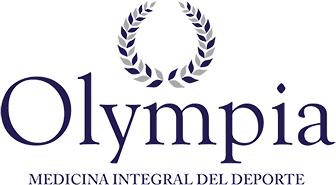Physical therapy and rehabilitation
The word PHYSIOTHERAPY derives from the Greek words PHYSIS which means
“Natural”, or “Nature”, and THERAPÉIA which means “Therapeutic”, “Treatment”, or “Healing”.
Physiotherapy is the art and science of physical treatment, that is, the set of techniques that through the application of physical means (therapeutic exercise, heat, cold, water, massage, manipulations and electricity) cure, prevent, recover and re-adapt individual. In addition, it includes the execution of electrical and manual tests to determine the value of muscle involvement and strength, tests to determine functional capacities, the amplitude of joint movement, as well as diagnostic aids for the control of evolution.
Physiotherapy offers services to develop, maintain and restore movement and maximum functional capacity throughout life. This includes providing services in cases where movement and function are threatened by injury, aging, disease, disorder and environmental conditions or factors. Functional movement is considered essential for an optimal state of health.
Physical Rehabilitation is responsible for identifying and maximizing the potential for quality of life and movement, within prevention, treatment, habilitation and rehabilitation. This encompasses the physical, psychological, emotional and social well-being (with a tendency towards the independent attitude of the individual) and involves the interaction between the physiotherapist, the patient, the family and the caregivers, using the unique knowledge and skills of the physiotherapists.
The means used by physiotherapy are:
- Kinesitherapy:It consists of the treatment of diseases through movement.
- Thermotherapy:application of heat on the organism through material bodies that have an elevated temperature.
- Cryotherapy:application of cold on the body for a therapeutic purpose.
- Hydrotherapy: Water use for therapeutic purposes.
- Electrotherapy:Application of electrical currents.
- Hydrokinesitherapy: Performing exercises in the aquatic environment.
- Massage Therapy: Use of different massage techniques.
- Magnetotherapy:Therapy using electromagnetic fields.
- Ultrasound therapy:ultrasonic application.
- Laser therapy.
Processes involved in Physiotherapy
Physiotherapy will intervene in the pathological processes of all Clinical Specialties provided that the application of any of the Physical Therapy modalities described above is indicated, being the physiotherapist responsible for the assessment and planning of objectives and therapeutic measures of Physiotherapy .
- Rheumatology: rheumatoid arthritis, idiopathic juvenile arthritis, osteoarthritis, ankylosing spondylitis, gout.
- ORTHOPEDIA AND TRAUMATOLOGY: traumatic, congenital or acquired lesions. fractures, arthroplasties, postoperative recovery, sprains, dislocations, muscle tears, bruises, tendonitis, bursitis.
- NEUROLOGY:Infantile cerebral palsy (PCI), disc herniation, hemiplegia, multiple sclerosis, parkinson’s, spinal cord injury, EVC, etc.
- GERONTOLOGY: loss of mobility and functionality of the elderly patient.
- SPORTS MEDICINE:injuries of the musculoskeletal system, diseases of athletes.
Address:
Street Margaritas #49, Sm.22, M.25, Cancun, Quintana Roo, Mexico.
Working hours:
Monday to Friday from 9:30am to 2:00pm and 4:30pm to 9:00pm
Phones:
- 998) 884-02-86
- (998) 884-12-29
Follow us:
Email:
medicinadeportiva@live.com
